Monique Roffey’s recent article on the Waterstones blog created quite a stir when it was posted and shared over various social media. The article was an echo of an essay Roffey had published in Wasafiri, Vol. 28 No. 2, in June 2013, entitled ‘New Writing from the Island of Trinidad’. This contentious one however was supposedly wider in scope, entitled ‘The New Wave of Caribbean Writers.’ In both articles, Roffey seems to be attempting to inform persons about not just who is writing or worth reading, but also on the trajectory that Trinidadian and Caribbean literature has taken to bring them both to what she thinks is a particularly auspicious and mature period. Via e mail threads, facebook threads, private messages, there has been a lot of talk going around about the article on the blog. Many persons were displeased with it for a number of reasons, many of which were absolutely justified. What it did however is raise some very important questions for everyone involved, the surface of which has been scratched in discussions at regional literary festivals and other such gatherings. I watched the article hover over all these discussions around it, almost out of reach in a way, far off in Britain though in cyberspace. If Roffey was indeed to be challenged, as I am about to do here, she would at least be saved from obloquy before her British cohorts. It is intriguing how much of Roffey’s growing (or grown?) reputation as a Caribbean Writer has been planted quietly in British magazines where Roffey, with a rotundity and assuredness, tells the world about the Caribbean, its literature and subtly, her benevolent and humble position in it.
See blog article here: http://www.waterstones.com/blog/2014/07/the-new-wave-of-caribbean-writers/#more-57279
The article on the blog is striking in its presumption and how gapingly ahistorical it is. Not only is there a huge lacuna in the trajectory of Caribbean writing (that any serious Caribbean writer/reader would recognize), but Roffey seems only vaguely acquainted with who was writing what in the periods she does mention. As one person commented, she seems ignorant of almost forty years of Caribbean writing and assumes that everyone is as ignorant. Why this is troubling, is because Roffey of late has emerged in Britain as a kind of spokesperson, an ex-pat ex-pert (even [e]x-rated) on Caribbean literature; someone who is discovering something that didn’t exist before, or existed in a much less refined state. Her presumed knowledge of Caribbean writing is not the only problem but she seems to have tremendous difficulty with understanding the most basic, most axiomatic things about Caribbean society. This may have to do with the ahistorical approach she takes to cultural analysis as well as her idea of progress as suggested in statements like these:
“Instead the region has grown capitalistic and brutal. Votes do not add up. A complex society does not get fairly represented with a two-party system. The people of the region, once tortured and subjected to grand crimes against humanity, are still hurt. It could be said the region demonstrates generalised symptoms of Borderline Personality Disorder. People tend to flare up. Violence is commonplace. ” (emphasis mine)
This is ignorance itself at its nadir; staccato type of un-nalysis. Any bloke knows that the region has not grown capitalistic and brutal. It was founded upon the ideals of capitalism and on permissible brutality. In the same article, in fact the same paragraph, she chides tourists who “visit and yet they complain about the service in hotels. Many of the hotels are old plantation estate Great Houses and many of these tourists don’t see, or care to see, the echo of past horrors in the region.” Indeed these horrors, according to Roffey herself in the longer quote above, don’t seem merely to be echoes but the problems themselves, still in existence. Nonetheless, Roffey celebrates this perceived ‘maturity’ of Caribbean writing away from these subjects and towards more ‘universal’ and ‘human’ themes in an ‘it was about time!’ sort of way in both articles:
The unique mestizaje of Trinidadian culture, the racial tensions produced by slavery are now a given; it is part of the story, not the subject of it. The stories these women (from Roffey’s writing group in Trinidad) are writing about tell of what it is to be human in Trinidad today. While today’s writers may still be critical of government (as I have been of Manning’s People’s National Movement), the notion of ‘writing back’ has melted away. (Wasafiri, 5) (emphasis mine)
As if what it meant to be human in Trinidad or anywhere in the Caribbean does not have to deal with this legacy; if not in literature, then in extra-literary spaces. And are the two independent of the other? Even in the historyless utopia that Roffey contrives, we see (in her own words) in this society the lethal relict of the condition, structures and contradictions that those writers of the so-called ‘writing-back’ generation addressed. A similar sentiment is expressed in the more recent article from the Waterstones blog:
Our generation is no longer writing back, that much strikes me as over for sure. Instead, we are writing for ourselves and sometimes towards each other. We are not only talking to each other, but sometimes arguing too….
Roffey’s idea of an increase in complex writing in the Caribbean is one that rejects or ignores history. It views the generation of the 60s and 70s as scapegoats who have accepted the sin of history and paid for it on the behalf of Caribbean writing. I am speaking of those who, according to Roffey-Raleigh, “ the Golden Era of Caribbean Literature, which is an odd way of seeing them, given that so many of these writers, (some of whom I’ve now met), don’t glow and aren’t made of gold.” But even the idea that “writing back” is a time that has gone is inaccurate. The whole writing back idea Roffey has is reductive and simplified, it ignores not only several writers who were not really writing back but doing the ‘new’ thing that she praises her generation for: “we are writing for ourselves and sometimes towards each other.” Which still begs the questions ‘About what?’ and ‘Who was the previous generation writing to/ward?’ Even works that might owe some debt to the European Great Tradition, like Omeros are studiously engaged in a conversation with Caribbean writers like Wilson Harris and Kamau Brathwaite. Roffey ignores a work like Brathwaite’s trilogy ‘The Arrivants’,— the first part of which would have been published around her birth year— which was not engaged in writing back as much as it was tracing the epic trajectory of the African from enslavement to the emergence of the diaspora using African and Caribbean musical forms as the rhythmical backbone of the poetry. And that was in the 60s! Or what about Naipaul’s commission to write ‘The Middle Passage’ at the invitation of Trinidadian Premier Eric Williams circa 1962? What Roffey does not realize is that writers then and now are writing HUMAN stories, writing about what it means to live in a particular society which structurally has not changed much.
A cursory glance at Caribbean Literature may reveal that as the colonial relationship to the metropole (with the new addition of the U$A) became more subtle or more accepted ‘as a given’ (as she says) in the era after those who ‘wrote back’, allowed for writing that more subtly or tangentially engaged colonialism. But Roffey’s modus operandi is to separate Caribbean society and Caribbean literature and to simplify them both. I am resisting the temptation to suggest that she is afraid that admitting this may require more of her as a writer and thinker, that it might require more introspection and historical acquaintance with the Caribbean than the smattering that she seems to possess regarding both Caribbean Literature and Caribbean Society and the inextricable relationship between them. Hers is an ignorance that is unforgivable in the way that a politician’s ignorance is unforgivable. They both set themselves up as experts, as our self-appointed discoverers and cyaptains.
Both of Roffey’s articles have this suggestion of discovering a generation, in what was already a steady stream. If there are more writers now, perhaps it is because there are more opportunities, but this generation is part of a long tradition that has never been starved of good writing since its indigenous advent. Like a politician, a cultural attaché, there is a hint of the tendentious in both articles, an insidious bit of rhetoric. She completely misrepresents Marlon James’ Key Note Speech ‘A National Literature’ given at Bocas 2013 as part of the Edinburgh World Writer’s Conference, claiming that the speech “more or less came down on the side of doing away with a regional or national literature, seeing it as reductive and a way of keeping writers and their writing small.” This is a gross perversion of what Marlon was saying and reiterating throughout his speech. At the heart of the speech, Marlon is asking firstly “How do I get to be national enough? Who gets to define it? And will they be inclusive or restrictive, because that makes all the difference.” And he is also saying that ““National Literature is worth fighting for, but also worth fighting over.” (emphasis mine) James is talking here about a literature that is always challenging, questioning and reflecting upon itself, a vibrant literature that resists smugness and thereby subverting its own dwindling into parody and caricature.
One wonders what is the motive behind all of this? What is to be had from this ahistorical approach to a society that has been so successfully pursued by its history, and not by choice. Not in the way that the Englishman walks through his stony city of monuments and cathedrals and museums, but the vigorous and tenebrous forces of history that continue to afflict and bless the very people that Roffey sardonically and with not a little annoyance has expressed her boredom: grandmothers and other old relatives, and breadfruit etc. (She must be absolutely furious, and must completely miss the double entendre then in the new saltfish soca song that is popular in the Eastern Caribbean right now!) Because of this maybe, she has missed what is in fact a ‘writing back’ to ancestors, in the poetry of people like Tanya Shirley, Kei Miller, Christian Campbell, Shara McCallum or the prose of persons like Marlon James, Kei Miller (again), Diana McCaulay, Merle Collins and so many contemporaries writing in or from the Caribbean/diaspora. Is this not a way of now talking to oneself and each other while simultaneously rejecting the single story given them about their ancestors? Just as Jean Rhys did? These writers revisit the spirits of these old relatives not to beatify them but to truly address the space inbetween, to upbraid them, to understand them, to engage them again in complex ways. Roffey however says little of this trend (which can still find antecedents in the 60s and 70s generation she has a negligible acquaintance with), instead she has more than once expressed impatience with it, has even demeaned it as passé just as she seems eager to eulogize ‘writing back’ and history itself while she raises the wraith of a literature she has apparently discovered, lobotomized of its historical sensibility, its history altogether— a literature that has chosen instead to write about ‘real’ things, human things.
The glaring irony about Roffey chiding the tourists in the blog article is that they possesses the same empty, anti-historical and flippant approach to the region that she does. In addition, she too spends only part of the year in the region (in Trinidad pretty much). Just as she speaks of particular tropes or themes as new in Caribbean writing when they really aren’t, she sees brutality, capitalism, drugs, crime and the like as ‘new’ things. So Roffey is both heroically enlightening the British citizen, disabusing him/her about their idea of the islands as ‘paradises’ while she is discovering the islands’ literatures on behalf of the World. In this way, Roffey is a ‘maverick’ who is willing to speak the ‘truth’ about the Caribbean, a sort of savant and pioneer. But it makes sense: if there is no historical sensibility then everything is new, sui generis, comes out of nowhere. She seems to be in some sinecure now that dictates or proclaims from the metropole, what Caribbean writing is, was, where it has come and what has been right or wrong about the direction she believes it has taken. Her rostrums have been British newspapers and magazines. Urbi et Orbi. She is now the British correspondent for the Caribbean, the Caribbean’s link to the wider world of resources and opportunity; the one who knows the ‘real deal’ about Caribbean writing. Not a gatekeeper however. Not at all. To quote one Caribbean writer (actually four, without prompting) who read the article: ‘a latter day Columbus’.
Roffey’s ignorance also raises the issue that she is trying to abscond from: What constitutes a Caribbean writer? She even tries to make a virtue of not engaging this issue, and a strawman of the issue itself:
” Some of us are still gate-keeping, asking what is the real deal, who constitutes a true true Caribbean author and who doesn’t. And some of us are too busy writing for such censorious thoughts about identity.”
This is not an attempt to gate-keep, but rather creating a means by which one could discern specious and superficial interactions with the Caribbean from deeply concerned, profound engagements with the society. Does being a Caribbean writer merely mean that you were born, or even born and grew up in the region? The question is important though in some circles it has been straw-manned by coalescing it with a perversion of it which I am not sure exists in the way that Roffey claims: the idea of gatekeeping. No doubt there has been politics and quarrels within Caribbean literature, but isn’t that what Marlon says is an indicator of a vibrant literature, one worth its salt? It strikes me that what Roffey may be calling gatekeeping is really any situation that requires that she gets serious and rise from her lounge chair of analysis. The only shibboleth we need to decide who is Caribbean or what is Caribbean literature, a book or work we would like to claim as ours may just be how serious and truly probing and concerned this or that writer is. And over and above all of that, how honest is this writer about him/herself, and about those whom s/he writes about, and all the things inbetween.
I suspect that if what Roffey requires of Caribbean Literature is greater complexity, that it addresses difficult truths and peoples its society, its stories, with rehumanized Caribbean citizens, she may see what complexity there is in the writing if she requires the same complexity, the same willingness to address difficult truths of herself. Either that or take one look, this time in earnest, at the last 60 something years of Caribbean writing.
By Vladimir Lucien

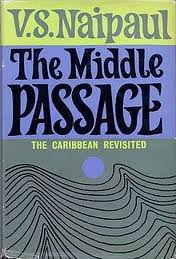
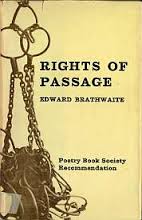
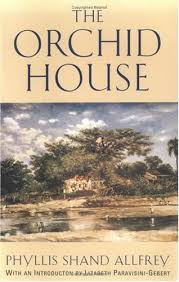
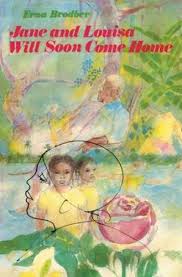
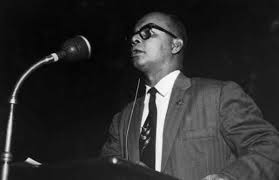
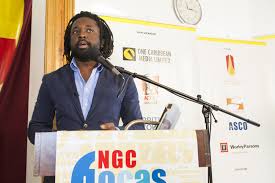
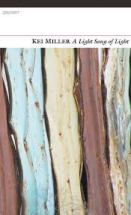
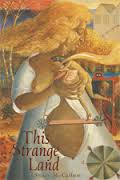
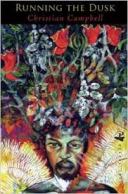
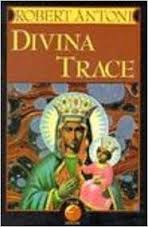
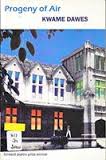
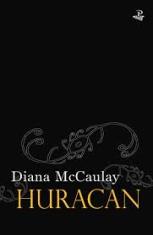
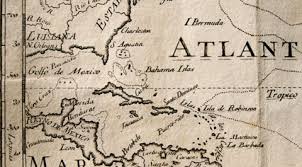
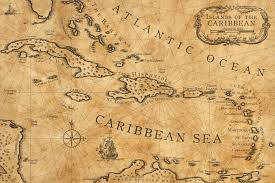
Pingback: Monique Roffey’s article stirs controversy | Repeating Islands
Dear Vladimir : I was in shock when I read Monique’s article in the web, but I gathered that it was just the fact tat she is a relatively new writer. As a Caribbean
Puerto Rican I am growing accustomed “to grin and bear it” and wish her a HAPPY
PARTIAL IGNORANCE and HAPPIER AND MERRY FUTURE AWAKENING!!
LikeLike
Mr. Lucien, your article makes several great points. I wish, though, that you would also do two things that this article does not, namely: explore the right to respond to Roffey in Wasafiri, and second, devote more space to a methodical and illustrated challenge to the fallacies that she’s disseminating, and as little as possible to attacking her person or reputation. That would do us all a great service. Obviously, anyone who believes that a literature that spans the enormous breath of sophistication and complexity from the work of CLR James and Sam Selvon to those of Marlon James and Edwige Dandicat is only just reaching (for) maturation, is clearly misinformed. However, I would humbly recommend that you watch or read a lecture that I’ve recently cited elsewhere; Edward Said’s response to Samuel Huntington’s essay, “The Clash of Civilizations?”, for ideas on how to improve this piece.
LikeLike
And do please pardon the typographic errors in my earlier response.
LikeLike
Hey Olu. If Ms. Roffey’s reputation is built upon her expertise on Caribbean society/literature then damage to her reputation, I’m afraid, is/was inevitable. But certainly not my intention. What I was attempting to do was to ‘write back’ in a different sort of way. Not to the empire , but in a way yes, to the empire. Ms Roffey is Trinidadian by birth, British by Education. She has lived in both places. But she proclaims unchallenged from metropolitan sources, and with a flippancy that Caribbean people have never grown fond of. Now in these British publications there is no challenge. She therefore exists as our spokesperson— self-appointed that is. Our literature has had a long relationship with Britain, and British sources— from Caribbean Voices, up to now when many of our writers are published in fact by a British Press, Peepal Tree Press— including myself. Even though this time we have a more conscious European person behind it, in Jeremy Poynting (see his essay in the latest edition of Anthurium journal entitled Interventions in Caribbean Literature, I think). So, post-independence, post-colony, and all these fancy terms— the metropole is still important. Our economies are still so largely dependent and the literature, at least regarding funding and opportunity, has a similar ‘dependency’. More opportunities are rising in the Caribbean and ‘dependency’ is itself a simplification to describe the relationship as Caribbean writers continue to ‘write back’. But Ms. Roffey’s position also has a long tradition in the Caribbean. Though she is Trinidadian, her failure and obstinacy, in NOT engaging Caribbean society/literature before setting herself up/or her reputation up, as a Caribbean expert in the metropole does of course raise many hairs, and is its own form of gatekeeping. So I write back….
LikeLiked by 1 person
The whole notion of writing back i think is a sinister kind of synechdoche in which a fraction of writers’ oeuvres are made to seem like the bulk of their work. Here we have Walcott for instance saying he never felt DEGRADED by being a British Colonial—- point is the issue is so much more complex than that expedient academic label:
LikeLike
Reblogged this on Active Voice and commented:
The following essay by Vladimir Lucien from St. Lucia is causing some waves among Caribbean literati. When is a writer a Caribbean writer was a debate that raged on Facebook for a while in May and seems to have spun off this searing critical response. Who has the right to call themselves a Caribbean writer? What do YOU think?
LikeLike
Pingback: READING ROOM VII | Wadadli Pen